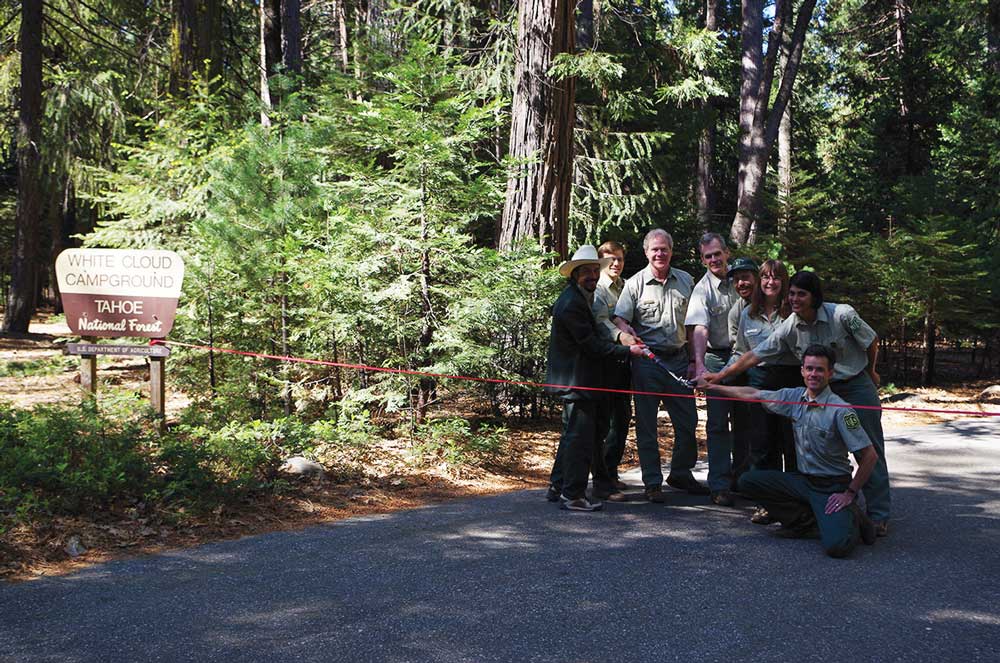For more than a decade, I have run a company that privatizes the operation—but not the ownership—of public parks. Imagine running a business that offers a cost savings of at least 50 percent, typically with improved service, but failing to get many takers. That’s the situation I often find myself in. Not surprisingly, public agencies are often reluctant to outsource some of their tasks, even when the financial savings are substantial.
The private operation of public parks can trace its roots back 30 years to a public-private partnership program started by the U.S. Forest Service. The program began more out of desperation than true belief. The timber revenue that funded recreation for years was drying up, and the agency needed a way to keep parks and campgrounds open. In the Forest Service model, the government retains ownership of the land and control of the use and character of the park, while handing over operational tasks to a more cost-effective private company.
In these partnerships, private companies typically provide visitor services, routine maintenance and repairs such as bathroom cleaning, landscaping, trash removal, and payment of utilities and insurance. These operational tasks account for the vast majority of the money spent by parks agencies. And because completing these tasks is a matter of contractual obligation, privately operated parks don’t build up the enormous deferred maintenance backlogs experienced by publicly run parks.
Private concessionaires pay all operations costs out of the entrance fees paid by the public—and without further taxpayer subsidies. In addition, the concessionaire pays the public agency a concession fee. The resulting savings to taxpayers can be quite compelling. In a recent PERC case study, I showed how a parks agency had to supplement every dollar in visitor fees with an equal amount of tax dollars to keep a park open. By privatizing the park’s operations, the need for tax revenues could be eliminated. And in fact, the park could be turned into a money maker for the agency.
While this may resonate with the public, it’s a hard sell to the agencies themselves. The National Park Service uses concessionaires to provide some visitor services, but it has not considered private operation of entire parks. Even the Forest Service—which does allow some private park management—often seems eager to go back to running the parks themselves.
No private company would behave like this. So why does the government?
Consider one example: The Tahoe National Forest in California recently took the operation of some of their parks out of private hands, ending a nearly 30-year partnership with one of our competitor companies.
Did the Forest Service do it to save money? The private concessionaire operated entirely with the user fees paid by visitors, using no taxpayer money, and even paid rent back to the government. The agency’s in-house operating plan for running these campgrounds requires at least $2 million in taxpayer money over the next five years to supplement user fees.
Did they do it to improve service? The private concessionaire employed more than 60 paid workers living on site, with managers who worked weekends and holidays. The Forest Service plan calls for half this number of paid employees, and none will live on site or work weekends—the busiest time for recreation.
Did they do it to address some egregious for-profit abuse? The agency is actually planning to replace dozens of paid private workers with volunteers. At the same time that the federal government is mandating higher minimum wages for campground concessionaires, the Forest Service is replacing paid workers with unpaid labor.
Did the Forest Service do it to keep user fees low? The original stated reason for kicking out the private operator was the concessionaire’s request to increase user fees in response to recent increases in California’s minimum wage. In the end, however, the Forest Service raised fees even higher than those proposed by the concessionaire.
No private company would behave like this. So why does the government? Over the years, I have observed three possible explanations:
1. Government employees have incentives that go beyond “public service.” For most agency managers, their pay and prestige and future job prospects are tied to the size of their agency’s headcount and budget. Privatization savings that look like a boon to taxpayers may look like a demotion to agency managers.
2. People who are skeptical of private enterprise and more confident in government-led solutions tend to self-select for government jobs. Even in the Forest Service, concessionaires frequently experience outright hostility from the agency’s rank and file. “It’s wrong to make a profit on public lands” is one common statement.
3. Government accounting is not set up to make these sorts of decisions well. Few agencies have reports that tell them whether an individual park’s revenues are covering its full operational costs. Costs can be spread over multiple budgets, making it seem as though public park operation is less expensive than it really is.
To overcome these obstacles, we’ve learned that progress generally has to start above the agency. Some sort of legislative push is necessary. And we try to find ways to pitch our solutions as a way for agencies to free up money to address other problems, such as fixing rotting infrastructure.
Unfortunately, at the end of the day, we generally make the most progress when there is a crisis. When the country is in recession and tax dollars melt away, and agency budgets are slashed to the point that parks may be closed, then we are finally called in to try to keep parks open. Of course, we’re happy to do it, but it’s a shame that it takes an emergency to achieve fiscal responsibility and to take better care of our public parks.




